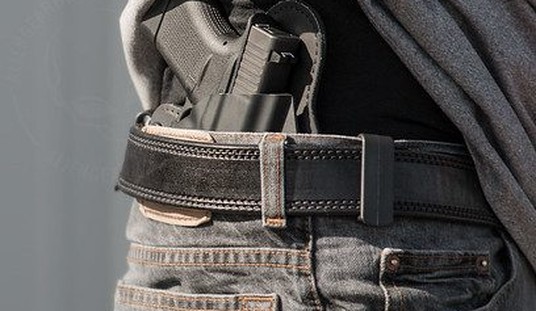Ninety-four members of Congress are asking the Supreme Court to hear a challenge to a Massachusetts “assault weapons ban” enacted by Attorney General Maura Healey, who announced in 2016 that the ban, which was originally passed in 1998, had been wrongly interpreted for the past eighteen years, and was actually far broader and more all-encompassing than the way it had originally been enforced. Gun owners, firearms retailers, and Second Amendment groups cried foul and sued over Healey’s decision, which amounted to new law via a legal opinion rather than legislation.
The case, called Worman v. Healey, has made its way up to the Supreme Court, where it was first listed in conference for consideration in late September. A number of organizations, including the National African American Gun Association, the National Shooting Sports Foundation, and the National Rifle Association have filed amicus briefs urging the court to take the case, along with the ninety-four members of Congress, who argue that lower courts are not abiding by the Court’s opinions in the Heller and McDonald cases, and that “ensuring the lower courts apply the appropriate framework to analyze new restrictions and properly protect the fundamental right to keep and bear arms requires a clear command from this Court.”
The brief argues that not only are lower court judges using a lower standard of review in determining the constitutionality of gun laws, they’re cherry picking quotes from the Heller decision to try to justify their rulings.
The district court’s decision in this case is an example of that approach. In Heller, this Court observed that “dangerous and unusual weapons” that were not “in common use at the time” were not protected by the Second Amendment. Immediately following this statement was a reference to “M-16 rifles and the like” as examples that could be banned without offending the Second Amendment. The district court here latched onto this language and framed the question as whether “the banned assault weapons and large capacity magazines [are] ‘like’ ‘M-16 rifles.’” The court quickly concluded that the banned firearms were like M-16s and are “most useful in military service,” so they are “outside the scope of the Second Amendment.”
This conclusion, however, disregards critical distinctions between the M-16 and the banned firearms. Importantly, the M-16 used by the military is a machine gun. Every variant of the M-16 employed by our nation’s military is capable of fully automatic fire or can fire in three-round bursts with a single pull of the trigger. The rifles Massachusetts bans (like the AR-15) are purely semiautomatic, firing a single time with each pull of the trigger. The M-16 and AR-15 may be similar in appearance but the AR-15’s “scary” appearance is no justification for banning it. However it looks, the AR-15 is not a fully automatic machine gun. So, it is not a type of firearm this Court described as a “dangerous and unusual weapon[]” traditionally subject to being banned. This drive to conflate the AR-15 with the M-16 has led lower courts to uphold gun restrictions without actually applying the test that this Court adopted in Heller and analyzing whether the rifle at issue was “in common use at the time” for self-defense.
It’s a solid brief. It’s a shame (and somewhat concerning) that there were only 94 members of Congress to sign on to the amicus brief, but I appreciate every one of them who did. One lawmaker who signed the brief is Elise Stefanik, a representative from upstate New York who says a decision reversing Maura Healey’s gun ban could provide an opportunity to challenge the New York SAFE Act and its ban on new semi-automatic firearms deemed “assault weapons”.
Stefanik said she joined that she joined colleagues in submitting the brief “to ensure the Constitutional right for law-abiding citizens to keep and bear arms is protected.”









Join the conversation as a VIP Member